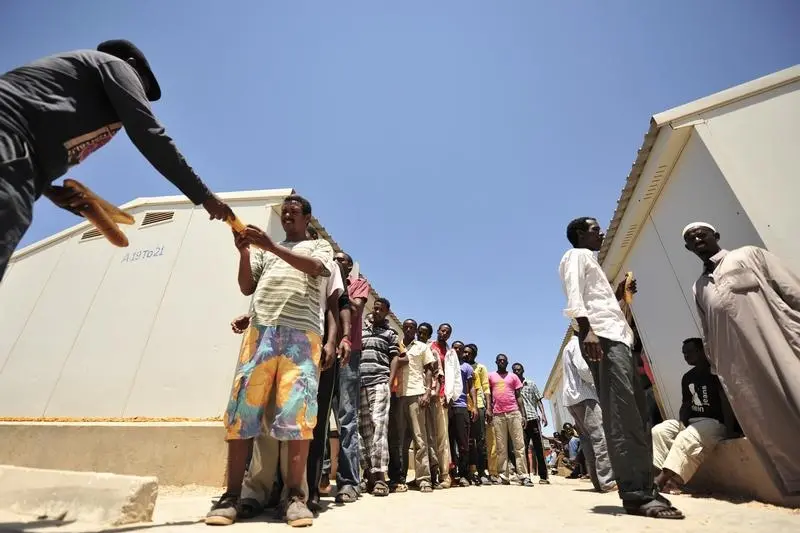PHOTO
TRIPOLI- Hundreds of migrants in Libya's Ain Zara detention centre live in basic conditions, sleeping on mattresses in the open air after a crackdown that rights groups have condemned.
Libya is home to nearly 600,000 migrants, according to U.N. figures. Most are from sub-Saharan Africa, some attracted by the prospect of work in the oil-rich country despite years of conflict and chaos, while others see it as a jumping-off point for travel on to Europe.
Over the past two weeks, authorities in Tripoli have arrested thousands of them and held them in detention centres in a crackdown that has resulted in several deaths.
Guards and Libyan officials at Ain Zara say they provide the migrants there with food, shelter and medical care, but migrants said many of them lacked supplies and they remained very fearful.
"We are providing assistance, from medical care and humanitarian aid to beds, blankets and all necessary medical supplies," said detention centre head Ziad Amer.
More than 1,000 migrants had been brought to Ain Zara in recent days, including many children, he added.
Crouched in rows on the ground, migrants waited to register with the United Nations refugee agency. Others lay on thin mattresses in the open air next to a bare concrete wall, some with blankets.
"The situation became terrifying for us. Even now, even though we are in a safe place and everything, we are honestly still very afraid," said 24-year-old Abdel-Alim Hassan, from Eritrea. He had previously been held for months in what he called "inhumane conditions".
It is very rare for international media to have any access to Libya's migrant detention centres to report on conditions.
Another Eritrean man, Mansour Hamed, said he had also been badly treated during a previous period of detention. In Ain Zara, migrants lacked basic supplies, he said.
"There is nothing," he said.
The United Nations children's agency UNICEF on Tuesday said around 250 children, including dozens of infants, were among the thousands detained in the recent crackdown. They faced "immediate risk" in Tripoli detention centres, UNICEF said.
Libya's Government of National Unity has said it is "dealing with a complex issue in the illegal migration file, as it represents a human tragedy in addition to the social, political and legal consequences locally and internationally".
(Reporting by Reuters Libya newsroom, writing by Angus McDowall; Editing by Giles Elgood) ((angus.mcdowall@thomsonreuters.com; Reuters Messaging: angus.mcdowall.thomsonreuters.com@reuters.net))





















